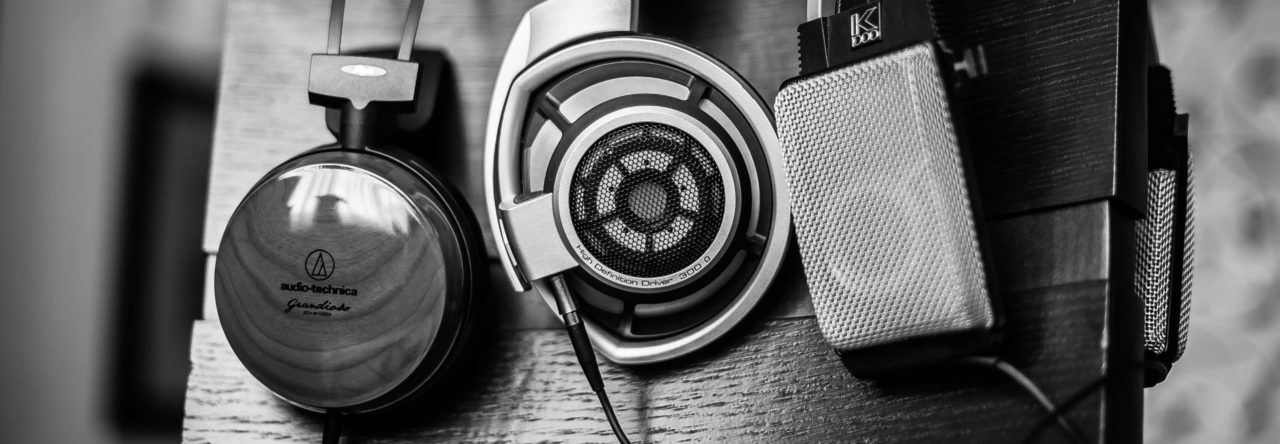
One day down, two left to go. The start of the 2016 Pitchfork Music Festival was plagued with a light rain shower, followed by gray clouds that seemed somewhat ominous for the rest of the day. Thankfully it was a largely dry day, and the music was sunny enough that the skies didn’t matter so much. I’ll have all kinds of photos and other goodies once the weekend wraps up, but in the meantime please join me after the jump for a brief recap of everything I saw and did on Friday.
Tag: beach house

So you’re planning to attend the 2016 Pitchfork Music Festival. Congratulations! You have made a very wise choice. It promises to be a great time in a great city with a great collection of artists. Speaking of those artists, one of the challenges with any music festival is looking over the schedule and trying to figure out who to see when. In the cases where you only like one artist performing at a particular time, the choice is easy. In the cases where you like two artists performing at the same time, the conflict can be tragic. But what about the artists you’re not familiar with? There’s always at least a few at any large festival, and even the most avid music fan has some knowledge gaps. The great news is that it’s easy to learn, and maybe just a little easier to make a crucial decision about a conflict, if you’ve got some outside help. Welcome to the first of three installments of the 2016 Pitchfork Music Festival Preview Guide! Here you can find out information about every artist on the lineup, and see recommendations on who you should be seeing at any particular time. So if you wouldn’t mind, please join me after the jump to check out the comprehensive guide to who’s performing on Friday. Let’s go!
Check out the preview guides for Saturday and Sunday as well as audio streams for every artist on the lineup.

![]()
![]()
In the span of six years, Beach House have gone everywhere and nowhere at the same time. Their 2006 self-titled debut was met with warm embraces by virtually everyone that heard Alex Scally and Victoria Legrand’s soft and somber take on bedroom pop. The interweaving of carefully plucked electric guitar and lackadaisical keyboards next to Legrand’s emotional vocal style made for a grand base to build off of, and that’s essentially what they’ve spent their last couple records doing. Their popularity has continued to increase with each new effort, and in late 2009 they signed a new record deal with major indie label Sub Pop that only bolstered that profile more. It helped that their third record Teen Dream turned out to be one of 2010’s best, sending their subdued melodies skywards with all the grace of a freshly lit firework. The moving parts remained the same, but the dynamics had changed. It stands to reason that album put the band at a precipice, and the only way they could go from there was down. The real surprise is that their new record Bloom does nothing of the sort. If anything, the album title alone suggests that Beach House has finally blossomed into one of the most talented bands making music today. That the music is tighter and better than ever before only helps to prove that.
Perhaps the first thing you should know about Bloom is that you probably won’t fully grasp its power from a single listen alone. It’s a complicated piece best experienced in one 60 minute chunk rather than in singles or jumping around to perceived highlights. Each track is in many ways its own highlight, but together they build upon one another both instrumentally and emotionally. The main contrast with Teen Dream is that record primarily took the idea of a break-up and spent each track hashing and rehashing through the scars left behind. Great (and sad) though it was, the central idea often tried to cram too much into one song, and the consistent commentary on being mentally wounded by another person seems rather simplistic in retrospect. That was sort of the idea though, as Legrand and Scally said in interviews for that last album. They felt as if their first two records were a bit too slow moving and emotionally terse, and the idea with the third one was to open up a wider expanse with greater heft. Successful though it was, the thought of “too much, too fast” also applies quite well. Bloom seeks to smooth out those not very rough edges by keeping the big songs but trying to do less with them. They’re no longer shoving a truckload of food for thought down your throat in 3 minutes, but instead are exercising portion control.
The lyrical ideas and concepts that Legrand sings about are better organized and clearer on the whole, even as they tackle more abstract subject matter. What do you do and how do you feel about the loss of innocence in your youth? Can you hang onto those qualities that brought you such joyful moments as a kid? How does the divorce of your parents or your sibling falling victim to disease affect your life? Those aren’t lighthearted topics, but Beach House have never been a lighthearted band. Still, like any good memory bank there are thoughts on good times too; those fever dream moments that put a calm smile on your face. There’s an intimacy to them as well, because the emotional response such nostalgia triggers is unique to your own personal experience. This record does a fantastically subtle job of lending itself to become exactly what you want it to be at certain times. In that respect its brilliance lies with how much of yourself you invest in it. As a kid, did you ever have a toy or stuffed animal that you spoke to and had very personal “conversations” with? You hay have shared things with that inanimate object that nobody else knows about even today. Yet that toy or stuffed animal was manufactured in a plant somewhere and there were millions more like it shipped around the world to kids who also shared their unique hopes and fears with them. What we were looking for then was a sympathetic ear that passed no judgment and didn’t talk back. Bloom is kind of like the adult version of that. You can’t hug an mp3 (even if you can do that with a CD or vinyl record) or go on adventures with it, but you can listen carefully as Legrand’s voice draws you in and puts you at ease. Her words, though dark at times, are plainspoken and broad enough to give you the impression she’s singing to you and only you. “What comes after this momentary bliss?” she asks into the void on “Myth”. Instead of pondering that future, perhaps it’s best to simply enjoy the present.
For all the emotion and careful arrangement that went into making Bloom such a solid, singular piece of music, it winds up being Beach House’s most pop-friendly work to date. The verse-chorus-verse structure is in full effect on each track, and the hooks are hammered remarkably hard to make sure they stick in your head. Listen to the album enough times and you’ll be able to hear the chorus of almost every song in your head simply by reading its title. Strong as they all are, it’s “Wild” that earns the first spot on the mantle next to the band’s other classic tracks like “Master of None”, “Gila” and “Zebra”. Scally’s guitar work bounces off the figurative walls as the synths glide just beneath them with all the grace of a piece of ice on a hardwood floor. The drum machine motors along in classic Beach House style, and Legrand’s vocals both soar and ache at the same time. Somewhere around the middle of the record, it’s tempting to get lost in tracks like “The Hours” and “Troublemaker”, both of which don’t quite have the same effect as everything leading up to them. The purpose those songs serve though is to build towards the next peak. Like any number of post-rock bands that start a song quietly and get louder until the tension results in the bursting of a musical dam, that moment arrives in all its glory on “Wishes”. It’s a remarkable track on its own, but when paired with the couple songs leading into it there’s just a little more shimmer and sparkle in its step.
In more ways than one, shimmer and sparkle is a great way to describe Bloom as a whole. The experience of listening to it is akin to viewing a sunset on a placid lake or running through a lawn sprinkler on a hot summer’s day. Its gauzy beauty envelops you in its arms and comforts as much as it unsettles lyrically. Alex Scally and Victoria Legrand have found a way to make their already established sound come off as fresher and more gorgeous than ever before without sacrificing their best qualities. Very few artists have it in them to conjure up such a brilliant record in the direct wake of what many believed was a career watermark a mere two years earlier. This is their 1-2 punch like Radiohead’s OK Computer and Kid A or The Beatles’ Revolver and Sgt. Pepper’s Lonely Hearts Club Band. People will not only be talking about this album for the rest of 2012, but likely well beyond it too. For a record whose title and subject matter are all about the impermanence of life, love and relationships, Beach House have made something that may just last forever.

![]()
So much of music today is all flash with not a whole lot of substance to back it up. That’s not meant to reference live shows with towering stage set-ups and blinding strobe lights, though those sorts of things do factor in. No, this has much more to do with the way melodies are constructed, with upbeat energy and massive choruses. As is the case with people and life in general, sometimes the little or quieter moments carry the most meaning. Lower Dens seem to know this and embrace it. Their first album Twin-Hand Movement was a drifting, atmospheric set of music that played largely off progressive and shoegaze influences. Singer Jana Hunter, having established an offbeat solo career prior to forming this band, provided a haunting core to the group. Her voice mixed with the sparse instrumentals often landed the group somewhere between Beach House and The xx in the “recommended if you like” bin. Lower Dens’ second and newest effort Nootropics does what any good sophmore record should do and expands upon what’s already been established. Synths and a light sprinkling of electronica add depth and new wrinkles to the band’s otherwise guitar-focused sound, and they go a long way towards making the album shimmer in just the right light. The last album felt like it wasn’t entirely sure about what it wanted to be, occasionally drifting off the main route and onto side streets to explore uncharted territory. The confidence, poise and focus they’ve now attained enriches the new record in almost every way: the drums are just a little crisper, Hunter’s vocals ache and swirl just a little more, and the overall beauty just has that much more of a devastating impact. This isn’t an album that tells you how to feel with its lyrics, but instead one that carefully guides you with somber melodies that are difficult to ignore. To the rabid pop music fan, some of these nuances and subtleties can be lost or written off as boring. The album’s finale “In the End is the Beginning” hits its stride early on and then sustains itself for more than 12 minutes without quitting. The track “Lion in Winter” comes in two parts, though they effortlessly bleed into one another and play out over nearly eight minutes. Early single “Brains” plays with minimalist psychedelia for five minutes, then releases right into the more propulsive Neu-like groove of “Stem”. It’s through these pairings and slow motion sojourns that we’re supposed to allow the darkness to fully envelop us. There’s anxiety and despair in there too, but in spite of the record’s overall moodiness the beauty bleeds to the surface and makes everything easier to take. It wouldn’t calm your mind as well as it does if the opposite were true. Those qualities are a large part of Beach House’s aesthetic too, and Lower Dens sound more like them than ever on Nootropics. That’s especially true on tracks like “Propogation” and “Nova Anthem”. Where the two bands truly disconnect though is in their presentation. Victoria Legrand is a very present and up-front vocalist, which is evident from Beach House’s albums. She takes charge and lets her voice soar when the melody requires it, and the band’s music is often described as lush or full-bodied as a result. By contrast, Hunter’s presence on the new Lower Dens record is wispy and in many ways detached from the other instruments, as if she’s wary of the outside world and its ability to hurt her. That emotional blockage contributes to the album’s fragility and brings otherwise invisible moments into focus. So while it lacks a certain degree of heart, it more than makes up for that via smart, well-considered craftsmanship. With an album title that references so-called “smart drugs” designed to improve brain function, Lower Dens appear to have taken some before sitting down to make this record. Let’s hope what they learn here sticks with them for the future.
